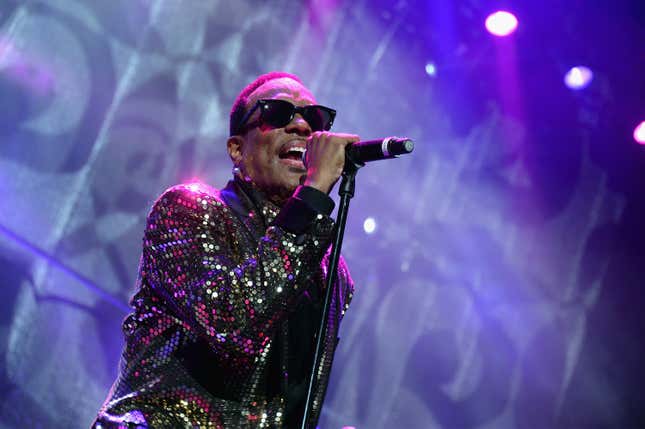
There isn’t a dance floor, wedding, cookout, or Black person alive who isn’t familiar with The Gap Band’s signature hit, “You Dropped the Bomb on Me,” and its contagious bassline. And on the latest episode of ABC Audio’s Soul of a Nation: Tulsa’s Buried Truth balladeer Charlie Wilson reveals whether or not the 1982 song actually has a much deeper meaning.
Much like myself, the soul legend’s roots can be traced back to Tulsa, Okla., where he grew up mere blocks away from the same Greenwood District where the Tulsa Race Massacre occurred in 1921. On that fateful night, a violent white mob descended upon the prosperous Black community known as Black Wall Street, and in less than 24 hours, they destroyed the entire neighborhood, killing as many as 300 of our people in the process.
It was not only one of the most violent racial attacks in American history, but arguably one of the deadliest instances of domestic terrorism. So considering The Gap Band’s connection to such a horrific event, rumors have persisted for years that “You Dropped the Bomb on Me” actually has a secret meaning.
In speaking with Soul of a Nation: Tulsa’s Buried Truth host Steve Osunsami, Wilson, who co-wrote the song, explained that despite the rumors, the only bomb being dropped is one made out of love. He’s grateful, however, that the confusion has drawn more awareness to the atrocities that continue to be committed against Black folks.
“It’s bringing attention back to the race riots. I’m so happy about that,” he said. “We knew we were going to go all over the world—at least I did. [And we knew] we’d have to talk about that, and where the name [The Gap Band] came from.”
While touring in the 1980s, the “There Goes My Baby” singer recalls the reactions the band would receive when they would bring up the disturbing history of their hometown.
“People were just kinda lookin’ at us like, ‘Are you sure? I’ve never heard this story before,’” Wilson said.
He also remembers how Lucille Figures, one of the survivors of the riots, shared the story of her escape from the massacre. She was 12 years old at the time it occurred and made Wilson vow to keep any details she shared private.
“She told me a lot of things. But she made me promise, ‘Don’t ever speak about what I told you until I’m gone,’ Wilson said. “She watched people die and getting shot. So she was to never speak about it. They kept it quiet, so they could be would be protected in some way.”
Wilson honored her request—Figures died in 2013 at the age of 104—and now makes it his mission to ensure that Greenwood takes its rightful place in our history books.
“Better late than never,” he said. “The story needs to be told.”
Soul of a Nation: Tulsa’s Buried Truth has new episodes available every Tuesday on your podcast platform of choice.

